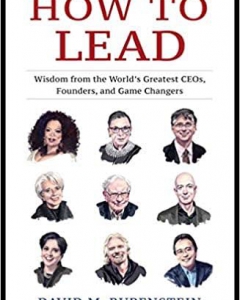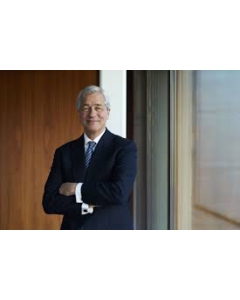Top 7 Leadership Principles of The American Oil King
Being a philanthropist and owner of the Standard Oil Company, Rockefeller became America's first billionaire in 1916. At the time, Rockefeller's fortune was worth nearly 2% of the national economy.
- 1- Make Schedule daily
- 2- Closely monitor the company's financial situation
- 3- Assign tasks
- 4- Create unity
- 5- Set up a support system
- 6- Respect employees
- 7- Active competition
To create that reputation and fortune, this man has his own management principles to lead the oil and gas industry.
Rockefeller is arguably the richest American in history. Author Ron Chernow argues that thanks to his uncompromising leadership style, he is also one of the most successful entrepreneurs in the history of the world. In his book “Titan: The Life of John D. Rockefeller, Sr.” the historian Chernow argued that thanks to his uncompromising leadership style that not only helped revolutionize the oil and gas industry, but also brought him fame and huge fortune.
1- Make Schedule daily
Rockefeller schedules his day on a regular basis. Every hour of an entrepreneur's life is "rigidly divided" and "closely budgeted", from work, to religion, to family and even exercise.

According to Chernow, this strict schedule could help Rockefeller cope with the inevitable stresses of running an entire oil empire. Compared to those stresses, it is much easier to follow the rules and daily schedule.
2- Closely monitor the company's financial situation
According to Chernow, Rockefeller's leadership style was "foresight". He only relies on numbers to see if the company is on the right track.
The oil magnate kept a handwritten diary of all the company's finances. He detailed every expense down to the last decimal. In this way, Rockefeller was able to create an 'objective metric' which compares performance and makes its own assessment, rather than relying on subjective reports of subordinates.
3- Assign tasks
To effectively run such a large corporation, Rockefeller certainly had to share the work with others. His point was: "No one wants to work himself when he can tell someone else to do his replacement. As soon as possible, get someone you trust, train him, guide him how to help the company make money."
For Rockefeller, this meant removing oneself from the daily complexities to focus on broader decisions and strategies. Of course, find someone you can trust with both competence and qualities.
4- Create unity
Chernow writes: One of Rockefeller's greatest talents was creating unity among his subordinates. He always listens to people's opinions before expressing his own. Instead of making decisions directly, Rockefeller preferred to frame his decisions in the form of suggestions and questions.

He also respects consensus. "The billionaire will not take any initiative that the board members oppose” - Chernow writes. All business decisions must meet the highest consensus.
5- Set up a support system
As a leader, Rockefeller was unavoidable to disputes or quarrels with other executives at Standard Oil. But very few people have the behavior of hating and bashing the company. They all share an almost a firm belief, a strong bond that makes them absolutely protective of the company. Neither government investigators nor curious journalists could "penetrate the narrow wave of like-minded people" at Rockefeller's Standard Oil.
6- Respect employees
Rockefeller pointed out that Napoleon Bonaparte would not have succeeded without the regimes. Similarly, Rockefeller credits his success partly coming from his ability to motivate employees.
Chernow writes that the oil tycoon gives his associates the right to master their work, tactful and easy to deal with subordinates, not react angrily when criticized and remain polite even in the most difficult situations. Although he rarely praises employees, he freely gives employees independence and freedom to make decisions when he sees them as trustworthy. Because of these characteristics, Standard Oil employees tended to respect Rockefeller and always sought to please him.
7- Active competition
Without competition, businesses easily fall into the hands of giants. To avoid this, Rockefeller established a committee of experts from various fields to establish a standard of performance for all Standard Oil companies.
Accordingly, they encourage their subsidiaries to compete to achieve the ideal performance numbers for the business, to receive honorary awards while the leaders are still exchanging detailed information with each other. The incentive to take the lead creates a positive competition and personal rewards.
Top 7 Leadership Principles of The American Oil King
What Is Needed To Be A Successful Leader?
Why do you want to be a leader? Because you want to be in the role of directing dozens, hundreds, or even thousands of employees? Do you want to be shown control ability / create value / focus on the future? Be yourself? Or a high salary? Maybe those reasons are correct. But in addition to the above factors, the requirement of leader’s responsibility is equally high.
Why do you want to be a leader? Because you want to be in the role of directing dozens, hundreds, or even thousands of employees? Do you want to be shown control ability / create value / focus on the future? Be yourself? Or a high salary? Maybe those reasons are correct. But in addition to the above factors, the requirement of leader’s responsibility is equally high.
Read moreSuccess philosophy of the US’s retail king
Success philosophy of "America's retail king": I got up from failure, continued after failure, rebuilt on failure and told myself to do better than what failed!
Success philosophy of "America\'s retail king": I got up from failure, continued after failure, rebuilt on failure and told myself to do better than what failed!
Read more11 tips for effective work and leadership by Jeff Bezos
Type the phrase "Jeff Bezos' leadership experience" or "Jeff Bezos' leadership secret" into a search engine, and within seconds weigh can get tens of thousands of results, including articles sometimes are the same, sometimes different, and offer many of the secrets of this world's top successful leader.
Type the phrase "Jeff Bezos\' leadership experience" or "Jeff Bezos\' leadership secret" into a search engine, and within seconds weigh can get tens of thousands of results, including articles sometimes are the same, sometimes different, and offer many of the secrets of this world\'s top successful leader.
Read more7 signs that identify the good manager
Becoming a manager, leader is the dream of many people. However, not everyone who steps up to this position has a smooth and favorable journey. A lot of people cannot face the difficulties and pressure of being in the good manager of an unit or department.
Therefore, let's join us to find out what qualities the good manager should have to help you prepare a solid luggage on your career success path.
Becoming a manager, leader is the dream of many people. However, not everyone who steps up to this position has a smooth and favorable journey. A lot of people cannot face the difficulties and pressure of being in the good manager of an unit or department.
Therefore, let\'s join us to find out what qualities the good manager should have to help you prepare a solid luggage on your career success path.
Read moreCOMMUNICATION FOR LEADERSHIP SUCCESS: 7 SKILLS FOR INSPIRATIONAL LEADERS
The following 7 skills of communication for leadership success are important for inspirational leaders.
The following 7 skills of communication for leadership success are important for inspirational leaders.
Read moreThe JPMorgan CEO talks about the characteristics of successful people
"Humility, openness, fairness and honesty are the most important characteristics - neither the smartest or the hardest in the room will be the most successful” said Dimon, who runs the US's largest bank with more than 250,000 employees globally, told LinkedIn editor-in-chief Daniel Roth in a recent video.
"Humility, openness, fairness and honesty are the most important characteristics - neither the smartest or the hardest in the room will be the most successful” said Dimon, who runs the US\'s largest bank with more than 250,000 employees globally, told LinkedIn editor-in-chief Daniel Roth in a recent video.
Read more9 BASIC SKILLS OF COMMUNICATION FOR LEADERSHIP SUCCESS
Good listening, spending time with employees, and talking to employees are the basic skills of communication for leadership success.
Good listening, spending time with employees, and talking to employees are the basic skills of communication for leadership success.
Read more7 TOP PERSONAL LEADERSHIP SKILLS FOR LEADERSHIP SUCCESS
People with good personal leadership skills are people with foresight, capable of strategy, predicting big changes and big opportunities in the future. These people make a mark in the hearts of employees with many skills that the average person cannot possess. So what are those personal leadership skills for leadership success and how do great leaders apply them to achieve their personal goals?
People with good personal leadership skills are people with foresight, capable of strategy, predicting big changes and big opportunities in the future. These people make a mark in the hearts of employees with many skills that the average person cannot possess. So what are those personal leadership skills for leadership success and how do great leaders apply them to achieve their personal goals?
Read more9 ELEMENTS IN LEADERSHIP SUCCESS OF SUCCESSFUL ENTREPRENEURS IN THE WORLD
The leader must always be the leader, leading the company or organization to success.
Here are 9 elements in leadership success of successful entrepreneurs in the world have in common:
The leader must always be the leader, leading the company or organization to success.
Here are 9 elements in leadership success of successful entrepreneurs in the world have in common:
Read more













